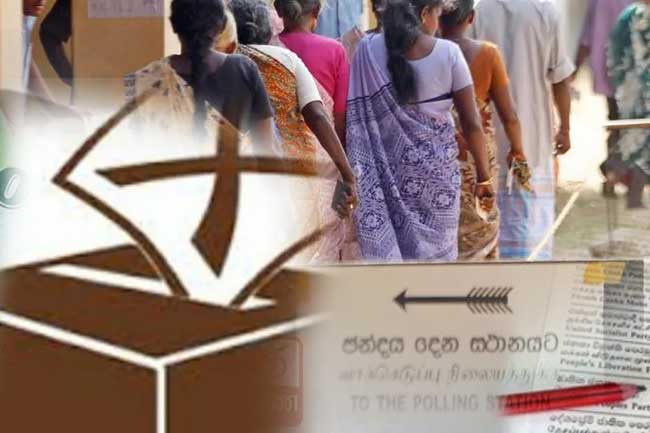Political circles are abuzz with speculation whether President Ranil Wickremesinghe will declare the general elections ahead of the presidential elections scheduled before the end of October 17.
Various news reports, circulating both in mainstream and social media, suggest that the general elections will precede the presidential elections.
According to inside political sources, some of the key members of the United National Party (UNP) led by the President are keen to have the presidential election first in accordance with the constitutional schedule whereas the others want a general election.
The rationale behind the latter perspective is the belief that contesting a general election while the President is in office would increase their chances of securing parliamentary seats.
Sri Lanka Podujana Peramuna (SLPP), as the key party that backs the President in Parliament, holds significant sway in influencing the decision. The UNP has only one seat in the House. When the party met with the President around one month before the party’s convention, it communicated its readiness for any election.
As the governing party, it commands the majority support of the House. In case of withdrawal of its support to the President in the House, the government’s legislative work will be hampered, leaving no option other than dissolution of Parliament for a snap general election.
However, the SLPP is under compulsion to take such drastic action since quite a number of its MPs who are uncertain about re-election are not prepared to go for a general election mid -term. In the case of serving full term in the House, they will at least be entitled to pension benefits. The SLPP cannot afford to go for an election by antagonizing them at this juncture.
The National People’s Power (NPP), the JVP-led political alliance, prefers to conduct the presidential election first. The party has already started political meetings in view of the elections pending next year.
The President’s decision may hinge on maintaining parliamentary stability and securing support from key political players.
The presence of tycoon-turned-prospective presidential candidate Dammika Perera at the SLPP convention is seen as a deliberate signal from the SLPP to the President regarding its stance on supporting a candidate in the upcoming presidential election. The President now holds the constitutional authority to declare a snap general election.


